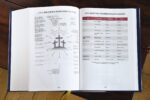A Biblical Theology of the True Davidic King

As is true with other kings in David’s line, when Solomon ascends to the throne, God declares, “I will be his father, and he will be my son” (2 Sam 7:14; cf. Ps 2:7). That same passage, however, promises to David (ca. 1000 BC) an unending dynasty (2 Sam 7:16). God progressively discloses how this will be fulfilled. Less than three centuries later, the prophet Isaiah foresees a king “on David’s throne” whose “government and peace” will never end and who will be called “Wonderful Counselor, Mighty God, Everlasting Father, Prince of Peace” (Isa 9:6 – 7). Other passages closely identify this coming Davidic king, sometimes designated “Messiah,” with God the supreme Shepherd (e.g., Ezek 34:1 – 24). Jesus the Son of God insists that he has received from his Father the command to be the ideal good shepherd (John 10:1 – 18). Mark’s Gospel begins by announcing “Jesus the Messiah [almost certainly referring to the Davidic king], the Son of God” (Mark 1:1), and this is confirmed almost immediately at the baptism of Jesus, “You are my Son, whom I love” (Mark 1:11).
When Mark’s Gospel draws to a close and the centurion who witnesses Jesus’ death exclaims, “Surely this man was the Son of God!” (Mark 15:39), whatever pagan notions the centurion presupposes by the expression, Mark’s readers recognize that Jesus is, at very least, the promised Davidic king, the Messiah. Jesus supremely enters into this kingly role by his resurrection from the dead (Rom 1:3 – 4). When Hebrews 1:5 ties Jesus to the promise of 2 Samuel 7:14, it is not confusing Jesus with Solomon but connecting him through this verse with the trajectory of Davidic kings that finds its promise and culmination in him. This makes him superior to the angels, for only he reigns perfectly in the name of his heavenly Father.
Content adapted from the article “Sonship” by D. A. Carson in the Biblical Theology Study Bible.
For the month of September, Logos is running a sale on the Biblical Theology Study Bible.


















